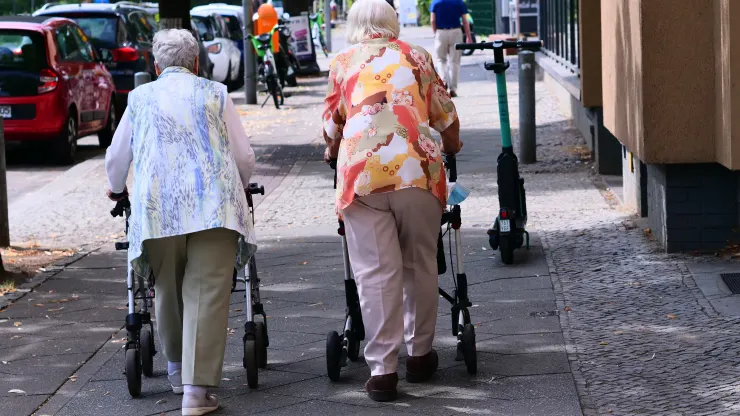
Germany’s pension system won’t be financially viable in five years’ time without reform, according to Rainer Dulger, the president of the Confederation of German Employers’ Associations.
The influential lobby group represents around 20 million employees in the German workforce. Dulger told Germany’s Bild am Sonntag newspaper Sunday that the German economy is weakening and the social system is on “the verge of collapse.”
“The costs will explode,” he said, according to a translation by CNBC.
In 2019, contributions into Germany’s public pension plans represented around 10.1% of the nation’s GDP, but this is expected to increase to 12.2% by 2070 under the current system, according to The 2021 Ageing Report published by the European Commission.
That 2 percentage point increase is one of the highest forecasted changes in the European Economic Area, beaten only by Ireland and Norway, where the contribution to the public pension systems is expected to be 2.6 percentage points higher in 2070, and the Netherlands, where the percentage of GDP spent on pensions will be 2.2 points higher in five decades’ time.
Labor shortages and an aging population are contributing to the challenges faced by the German pension system, and the situation will be “much worse” by 2030, according to Jake Barber from financial services firm SJB Global.
“By [2030], all baby boomers (people born shortly after World War 2) will be over 65 years old, and it is projected that within just a couple of decades, older people will outnumber children for the first time in history. If this happens, the current pension system will likely collapse due to being unsustainable,”
In Germany pensions are also funded by those who are currently working, which puts additional strain on younger generations as “baby boomers” go into retirement.
Right now there are around 50 people in retirement for every 100 workers, but that number is set to grow to 70 pensioners per 100 workers in the next 15 years.
A possible solution is providing greater incentives for workplace and private pensions, and allowing those to have higher contribution limits and flexible withdrawal options, rather than a heavy reliance on state pensions, according to Barber.
“Without these adaptations, the German State Pension runs a substantial risk of being underfunded,” he said.
Dulger suggested retirement age should be tied to life expectancy, saying it “shouldn’t be the case that increasing life expectancy leads to longer retirements.”
But German Chancellor Olaf Scholz rejected calls to hike the standard retirement age from 67 to 68 in June 2021 when he was finance minister.
“It’s not only based on wrong calculations, it’s also socially unfair,” Scholz said at the time, as reported by Reuters.
Scholz also said there “is no real need” to increase the retirement age, despite a panel of governmental economic advisors suggesting the threshold should be pushed to 68 by 2024.





















